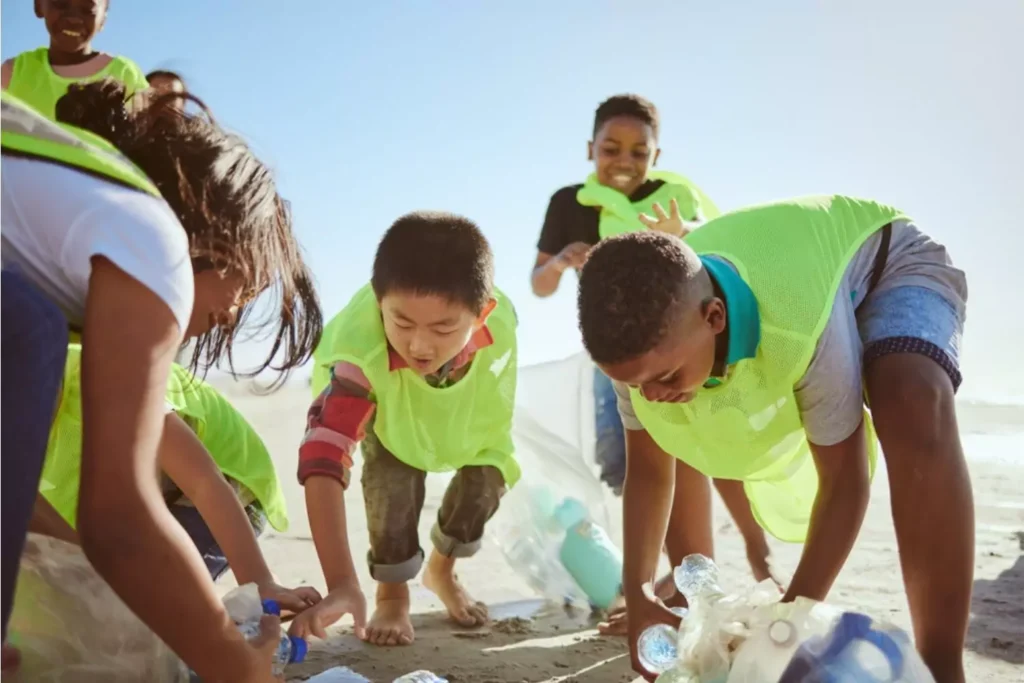
Helping Your Kids Develop Humility
Teach kids the importance of recognizing what it means to be genuinely humble.

Five ways to model social involvement for the next generation
Estimated reading time: 4 minutes
To raise your child to be an engaged citizen is an investment in your child.
The culture is changing. Your children are growing up in a different world than the one that shaped your childhood. Behavioral norms and beliefs about sexuality, marriage and family that were widely accepted — even a decade ago — are challenged today.
In the face of changing times, we have a choice: We can either step back and retreat, or engage and make a difference. We can shake our heads in dismay, or commit to model good citizenship for our children and grandchildren as an investment in our nation’s present and future.
You can make a difference right now in the sphere of influence given uniquely to you — your own home, with your own family. You can raise your child to be an engaged citizen.
Think for a moment about what kind of world you want to leave your children and grandchildren. One where human life is protected and God’s design for sexuality and marriage is respected? A society where religious freedom is secure in law and practice? Then why not begin by modeling social engagement for the next generation.
In fact, teaching your children about their roles as engaged citizens might be easier than you think. Here are some ideas to get you started:
Despite our best efforts, our children are not immune to cultural influences and events happening around them. From news stories to the chatter of classmates, every generation is impacted by the society in which they live. As parents and grandparents, we can acknowledge the tension in our nation over social issues and use those examples as teaching moments for discussion and prayer.
For older children, consider discussing current events and even specific news stories at dinner or devotion time. As the parent, you select the topic and craft the questions. For instance, what does your family believe about issues such as abortion, sexuality and the definition of marriage? Age-appropriate family discussions about what the Bible says on these topics help children formulate a Christian worldview and begin to navigate often-thorny social issues.
For preschool and school-age children, the concept of democracy comes to life when they experience an “election” where the family abides by the decision of the majority (even when some disagree with the outcome). Give your children the choice between three fun events: for instance, a visit to the playground, time at the pool or an outing for ice cream. (Be sure to choose activities that will “split the vote.”) Have family members vote on their favorite activity, tally the results, and announce the winning activity. When not everyone’s “favorite” wins, you can explain that although we may be disappointed sometimes, voting in the United States is an important right and a privilege that many other countries don’t enjoy. Just as important, voting allows us to express our Christian values in a tangible way.
Choose a historic figure that made a difference by influencing public policy on an important issue. One such favorite is William Wilberforce, an 18th-century English politician and Christian who campaigned to end the British slave trade. Wilberforce ultimately changed the world through his good works and faith. Study his life. What obstacles did Wilberforce face? How did he persevere?
As a family, look for a cause that you care about. What issues move your heart and spur you to action? Poverty? Human trafficking? Orphan care? Identify a family passion and learn more about the topic. Your rights as a citizen give you a wide variety of ways to speak out and improve the lives of others. Then look for ways to apply your voice and your efforts to make a difference.
One easy action step for young people is to participate in Focus on the Family’s annual Bring Your Bible to School Day, scheduled in early October. This student-led event promotes religious freedom by encouraging students to carry their Bibles to school and share God’s love with their schoolmates. In 2016, more than 350,000 elementary, middle school and high school students participated.
It’s never too early to begin impressing the value of civic engagement on the hearts and minds of our children and grandchildren. What will you do to help train up the next generation of Christian citizens?